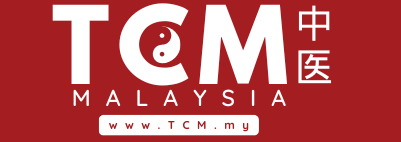Introduction
Menopause is a natural biological process marking the end of a woman’s reproductive years. It usually occurs between ages 45-55 and is defined as the permanent cessation of menstruation for 12 consecutive months. The transition phase before menopause, known as perimenopause, can start years earlier and is characterized by hormonal fluctuations and various symptoms.
From a Western medical perspective, menopause is caused by the decline of estrogen and progesterone, leading to symptoms like hot flashes, mood swings, and bone loss. In Traditional Chinese Medicine (TCM), menopause is seen as an imbalance of Yin and Yang, particularly a decline in Kidney Yin and Essence (精 Jing), which disrupts the body’s harmony.
This article explores menopause and perimenopause, their causes, symptoms, and treatments from both Western and TCM perspectives.
What is Perimenopause?
Perimenopause is the transitional phase leading up to menopause. It can start as early as the late 30s or early 40s and typically lasts 4-10 years. During this period, ovarian function declines, and hormonal fluctuations cause irregular menstrual cycles and symptoms similar to menopause.
Common Symptoms of Perimenopause:
- Irregular periods – shorter, longer, heavier, or lighter than usual
- Hot flashes & night sweats – sudden waves of heat and sweating
- Mood changes – irritability, anxiety, and depression
- Sleep disturbances – difficulty falling or staying asleep
- Weight gain & metabolism changes – increased belly fat
- Vaginal dryness – due to declining estrogen levels
- Reduced libido – lower sexual desire
What is Menopause?
Menopause is the natural end of menstruation and reproductive ability. It is officially diagnosed when a woman has gone 12 consecutive months without a period.
What Causes Menopause?
Menopause occurs as the ovaries stop producing eggs and hormone levels (estrogen and progesterone) drop. It can happen naturally or be induced by:
- Surgical removal of ovaries (hysterectomy)
- Medical treatments like chemotherapy or radiation

Common Symptoms of Menopause:
- Hot flashes & chills
- Night sweats & insomnia
- Mood swings & depression
- Weight gain & slowed metabolism
- Thinning hair & dry skin
- Vaginal dryness & discomfort during sex
- Weakened bones (osteoporosis risk)
Western Medicine Approach to Menopause & Perimenopause
Western medicine views menopause as a hormonal shift that can be managed with medical and lifestyle interventions.
Western Treatments:
- Hormone Replacement Therapy (HRT) – Replaces declining estrogen and progesterone to relieve severe symptoms
- Non-Hormonal Medications – Antidepressants or other drugs for mood and sleep issues
- Calcium & Vitamin D Supplements – To maintain bone health and prevent osteoporosis
- Lifestyle Modifications – Regular exercise, a balanced diet, and stress management
While HRT is effective, it may increase risks of blood clots, stroke, and breast cancer, so it should be used cautiously.
Menopause & Perimenopause in TCM Perspective
In Traditional Chinese Medicine (TCM), menopause is seen as a natural decline in Kidney Essence and Yin energy, which disrupts the harmony of Yin and Yang.
TCM Causes of Menopause Symptoms:
- Kidney Yin Deficiency → Hot flashes, night sweats, dry skin, irritability
- Kidney Yang Deficiency → Fatigue, cold intolerance, weight gain
- Liver Qi Stagnation → Mood swings, depression, breast tenderness
- Spleen Qi Deficiency → Digestive issues, bloating, weight gain
TCM Treatment for Menopause & Perimenopause
- Chinese Herbal Medicine
- He Shou Wu (何首乌, Fo-Ti)– Nourishes Kidney Essence, prevents hair loss
- Dong Quai (当归, Angelica Sinensis) – Regulates blood, relieves hot flashes
- Bai Shao (白芍, White Peony Root) – Soothes Liver Qi and calms mood swings
- Shu Di Huang (熟地黄, Processed Rehmannia Root) – Strengthens Kidney Yin
- Huang Qi (黄芪, Astragalus) – Boosts Qi and energy levels
- Acupuncture for Menopause. Acupuncture helps restore hormonal balance and alleviate symptoms by improving energy flow. Key acupuncture points:
- KD3 (太溪, Tai Xi) – Strengthens Kidney Yin
- LV3 (太冲, Tai Chong) – Regulates emotions
- SP6 (三阴交, San Yin Jiao) – Nourishes Yin and balances hormones
- TCM Diet for Menopause. TCM recommends a diet rich in Yin-nourishing and blood-boosting foods:
- Black sesame seeds, walnuts, and seaweed – Strengthen Kidney Essence
- Organic soy products (tofu, soy milk) – Contain phytoestrogens for hormonal balance
- Leafy greens, berries, and red dates – Support Liver and Blood health
- Maca Root (Red Maca Root) – Contains phytosterols. It stimulates the endocrine system, potentially helping to maintain hormonal balance and ease menopausal symptoms
- Avoid spicy, greasy, and processed foods – These can worsen hot flashes
- Lifestyle Tips (TCM Approach)

Conclusion: A Holistic Approach to Menopause & Perimenopause
Menopause and perimenopause are natural life stages that every woman experiences. While Western medicine offers hormonal and medical treatments, TCM focuses on balancing Yin, Yang, and Qi to ease the transition naturally.
By combining TCM wisdom, herbal remedies, acupuncture, and lifestyle changes with modern medical guidance, women can navigate menopause with greater comfort and well-being.

